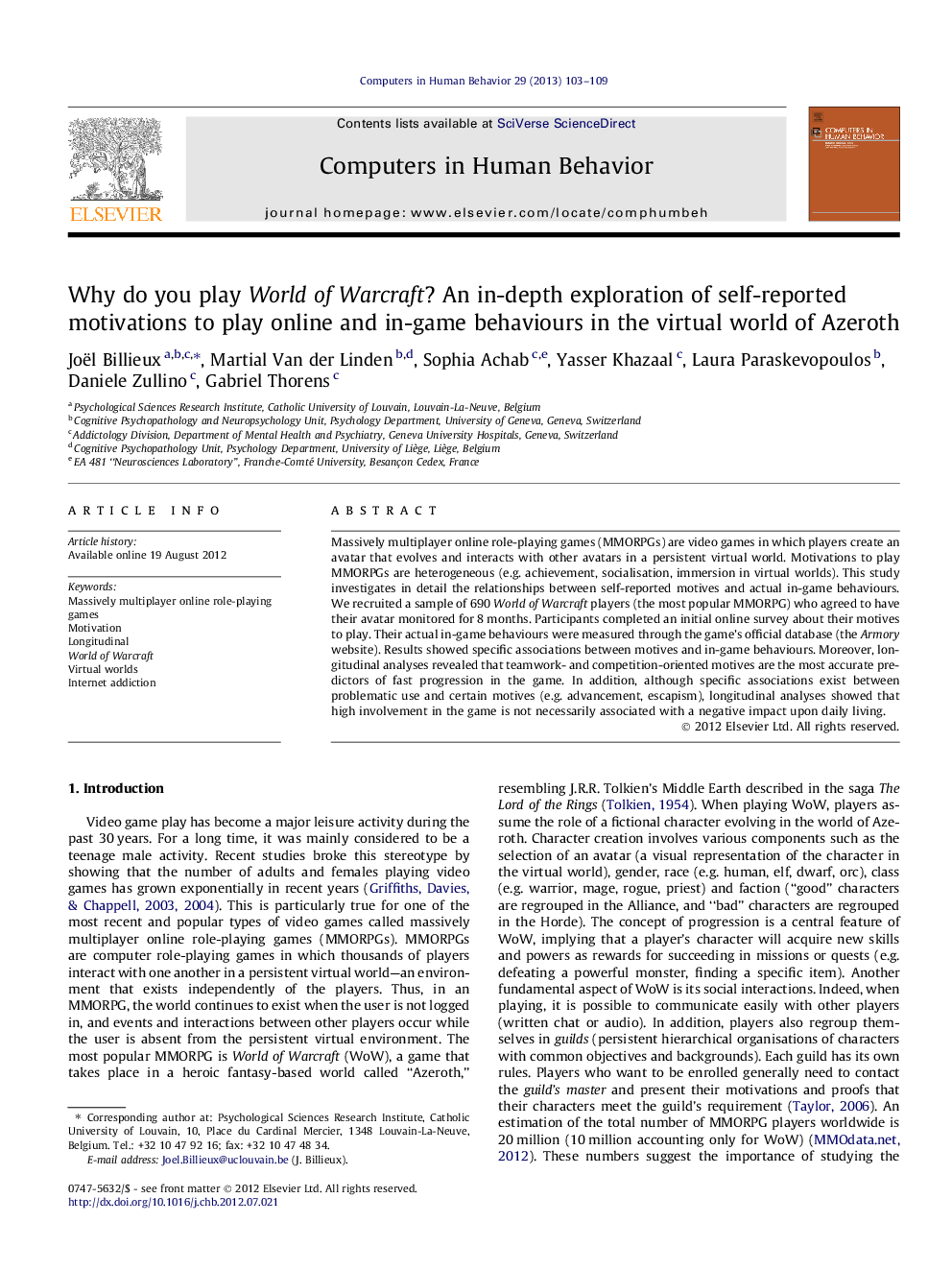| Article ID | Journal | Published Year | Pages | File Type |
|---|---|---|---|---|
| 351156 | Computers in Human Behavior | 2013 | 7 Pages |
Massively multiplayer online role-playing games (MMORPGs) are video games in which players create an avatar that evolves and interacts with other avatars in a persistent virtual world. Motivations to play MMORPGs are heterogeneous (e.g. achievement, socialisation, immersion in virtual worlds). This study investigates in detail the relationships between self-reported motives and actual in-game behaviours. We recruited a sample of 690 World of Warcraft players (the most popular MMORPG) who agreed to have their avatar monitored for 8 months. Participants completed an initial online survey about their motives to play. Their actual in-game behaviours were measured through the game’s official database (the Armory website). Results showed specific associations between motives and in-game behaviours. Moreover, longitudinal analyses revealed that teamwork- and competition-oriented motives are the most accurate predictors of fast progression in the game. In addition, although specific associations exist between problematic use and certain motives (e.g. advancement, escapism), longitudinal analyses showed that high involvement in the game is not necessarily associated with a negative impact upon daily living.
► We investigated World of Warcraft players’ motivations and in-game actions. ► In-game behaviours were measured by longitudinal monitoring of avatars. ► The value of studying personal motives to play MMORPGs online is supported. ► Fast progression is not necessarily associated with negative impacts on daily life. ► Teamwork and competition motives predicted fast progression in the game.
